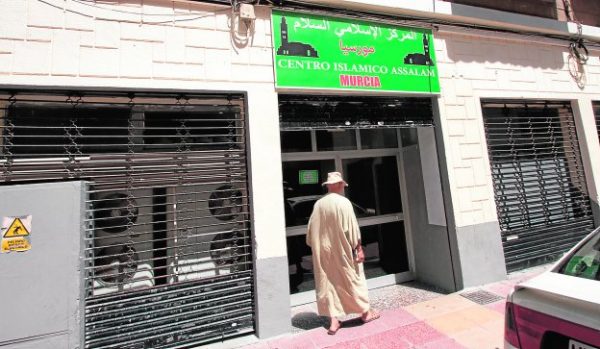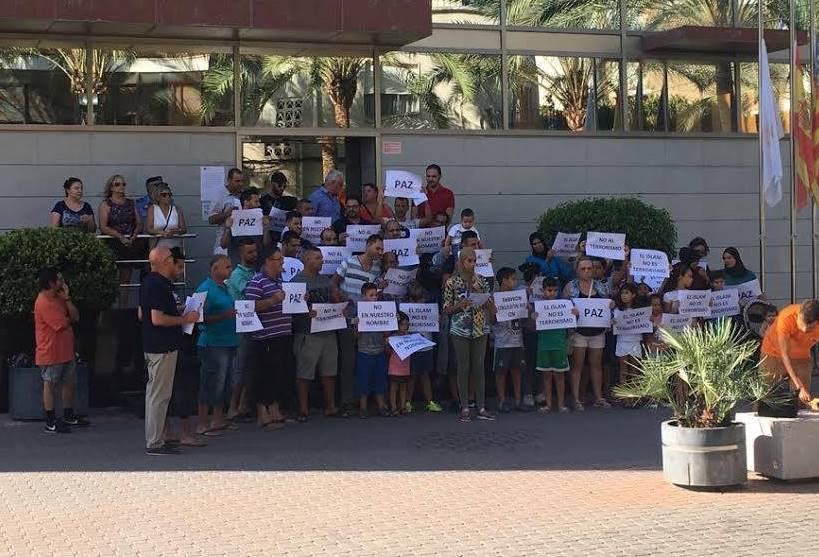The Islamic community in Dolores united with members of the Town Council on Tuesday to show their repulsion at the recent attacks in Catalonia and their solidarity with the victims. The attendants, accompanied by members of the government team including mayor, Joaquín Hernández, held a minute’s silence and read a statement in which they declared that “Islam does not represent terrorism”.
Meanwhile the Spanish Federation of Islamic Religious Groups (Feeri), which claims to represent 63 of the nearly one hundred mosques and religious organisations in the local area, spoke out last Tuesday of the “criminalization” they regularly suffer and denounced the inadequate involvement of the State in their organisation. “The government has not invested a single euro in our mosques, nor in the formation of our clubs and associations,” said its president, Mounir Benjelloun.

“Although they criminalise us, the state gives us absolutely to help in running organised groups and clubs that could help to properly educate people in the local communities about our religion.”
Following the Barcelona attacks there are many within the Moroccan Community who are currently living in fear of a backlash.
This problem is troubling not only Moroccans but also Catalonian leaders who consider their region a place where immigrants and natives have long lived in harmony.
One resident of Barcelona, Masry, says that people now curse and shout at her to “go back to your country.” She says she feels many people glare at her since the attack because she’s Moroccan. It’s something she says she never experienced here before, having arrived in Spain 14 years ago. And the backlash hasn’t only been verbal. A mosque and a Moroccan consulate in the west of Barcelona were both defaced late last week with red paint and insults.
But activist Miriam Hatibi says that so far, these incidents have been rare. She credits Catalonia’s success as a melting pot, where immigrants and locals live and work together in the same neighborhoods. “That isn’t always the case in other parts of Europe. Neither Catalonia nor the rest of Spain, for that matter, has produced the kind of hardline anti-Islam movements seen elsewhere. Nor has there been a groundswell of Muslim extremists here,” she said.





